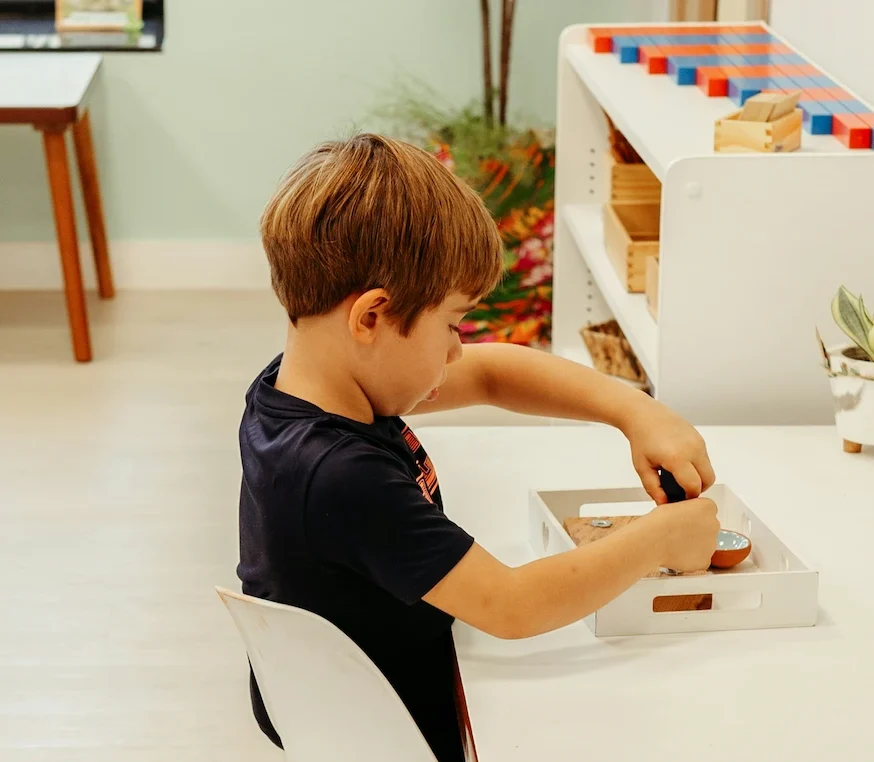Setting the Foundation for Success: 5 Ways Homeschooling Prepares Your Child for a Bright Future
Homeschooling can be one of the most empowering choices you make for your family. There are so many advantages! But we all have days when doubts creep in and we could use a reminder of why we are doing this.
This post is your guide, your reminder that homeschooling prepares your child for success in ways traditional schooling can’t always compete with.
Read through this list and pick the points that resonate with you the most. Write them out and stick them on your fridge! Then you’ll know exactly where to turn when …
- You’re having a rough day and wonder why you are creating so much work for yourself when there’s a school right down the street
- Your kids don’t understand why they can’t just watch TV all day
- You need your mother-in-law to stop asking how your kids will ever learn to stand in line if they don’t go to school
Let me know in the comments which of these benefits is most important to you, or if you have older homeschoolers, which ones you’re already seeing in them!

Table of Contents
1. Academic Success: Tailored Learning at Its Best
At the end of the day, we all want our kids to thrive academically. Fortunately, homeschooling gives us a big edge in customizing each child’s educational journey to fit their individual needs. Here are four powerful ways homeschooling sets your kid up for academic success.
Personalized Curriculum
Imagine being able to pick and choose everything your child learns. Unlike classrooms where the whole group moves through topics together, in homeschooling, you can create a lesson plan that fits your kid’s strengths and interests. You don’t have to stick with a cookie-cutter approach; instead, you’re giving them an education tailored to them as a unique person.
Whether it’s incorporating your family’s culture, diving into community resources, or weaving in hobbies, you’re crafting a one-of-a-kind education that just isn’t possible in any other setting.
One-on-One Instruction
Let’s face it: when your child is one out of 25 students in a classroom, it’s easy for questions to slip through the cracks. My husband remembers just not asking when he was confused in math class, because he didn’t want to annoy his classmates. He kept his head down, pushed through, and nobody ever noticed that he didn’t really understand.
Homeschooling offers the rare opportunity for deep, focused one-on-one learning. This means you can address any misunderstandings, target weak areas, and ensure they truly grasp material before moving on.
Even if you’re juggling multiple kids, they’re still getting more personalized attention than they’d find in a crowded classroom. You’re able to notice when they need help and find it for them instead of just pushing on.
Not too fast, not too slow
Every child learns at their own speed. That’s one of the best parts of homeschooling—you can keep the pace just right for your kid. If they’re flying through math but need extra help in reading, you can adjust lessons to allow for that. In school, kids are often rushed along through subjects they don’t fully understand or stuck doing the same busy work for hours.
In homeschooling, you don’t have to force the speed to fit anyone else’s timeline. There is truly no race, nothing to stay “on track” with, just the satisfaction of learning and continuing to understand the world a little bit better each day.
Time for Deep Dives
Another great advantage of one-on-one, personalized learning is that it takes much less time per day than learning in a classroom. All that time that students in school spend on moving from one class to another, listening to the teacher to explain things they already understand, or waiting for classmates to quiet down or finish their work can now be spent on going deeper into the subjects your child is most interested in.
Got a kid obsessed with dinosaurs, rockets, or birds? Homeschooling gives you the luxury of letting them dive deep into whatever interests them at the moment. Whether it’s spending weeks birdwatching or building model airplanes, the time spent following their passions is just as valuable as schoolwork.
2. Develop a Love of Learning
Beyond core subjects, homeschooling creates curious, motivated lifelong learners. Why? Because they’re free to follow their own interests and develop a genuine love for learning.
Healthy motivation
In schools, many kids learn because they feel like they “have to.” They go through the motions even if they don’t see the value in what they’re doing.
At home, education isn’t tied to fear of failure or external rewards. Instead, we can help our children see learning as something that’s valuable in its own right. They can follow their curiosity and see that their efforts have personal meaning.
Self-knowledge
In a school system, kids often march from subject to subject with little time to reflect on what resonates with them personally. In homeschooling, they can go deeper into identifying interests and strengths. It’s not just about learning math or history; it’s about figuring out who they are in the context of learning. Do they thrive when doing creative projects? Do they love step-by-step problem solving? Homeschooling gives them a space and time to discover these things.
Kids who know what they love learning about grow up into adults who love pursuing knowledge. They’re more likely to choose meaningful careers and hobbies later in life because they already know themselves.
Research skills and information literacy
In today’s world, it’s not just about knowing facts—it’s about knowing how to find accurate information. Homeschooling can offer your child real-world research opportunities, teaching them how to source, cross-check, and evaluate information effectively.
The greatest benefit here is that you are there to guide them as they go looking for information. You can start doing this early on by doing a search with them whenever they ask a question you don’t know the answer to. Tell them why some sources are better and more reliable than others. Help them see how marketing and influencers show us what they want us to see and not necessarily what is true.
Your local library is a great place to go to help your children build research skills. Try giving them a topic to research, and have them ask a librarian to show them where to search. Many successful homeschoolers take advantages of libraries that offer information literacy classes and resources to help kids develop their skills in this area.
Self-direction and time management
Kids who homeschool often learn how to manage their schedules and direct their own learning earlier than their peers. Without a rigid school day structure, they have to figure out how to balance their work and free time. This not only helps them academically but also builds critical life skills.
Personal Accountability
It’s one thing to be accountable to a teacher; it’s another to be accountable to yourself. Homeschooling naturally fosters this personal accountability. When kids are responsible for their learning and projects, they learn early on what works for them personally. They understand that the only person who can really track their progress daily—is them.
Are they meeting their own goals? Did they complete what they set out to do? If they didn’t, no one will “tattle”—but they know they fell short. That’s an invaluable character trait to take into adulthood.

3. Personal Development and Life Skills
Academic subjects teach real, important knowledge, but they don’t teach everything your child will need to know in life. There is more to life than school! Homeschooling gives your child a chance to learn essential life skills that kids in traditional schools often aren’t exposed to or don’t have time to practice.
Seeing What Adults Actually Do
Many kids in traditional school settings may not fully understand what their parents do at work or how it impacts the family. Homeschooling can naturally open the door to these conversations. When your kids are home with you, they get to see what “work” actually looks like—whether it’s problem-solving in meetings or troubleshooting the nitty-gritty details of a job.
This often-unseen slice of adult life helps kids grasp the realities of responsibility, work ethic, and even choosing a career path. It demystifies “grown-up jobs” and sets them up for a smoother transition into their professional lives one day.
Homeschooling Prepares Your Child with Practical Knowledge
Your child learns far more than just academics—they get hands-on experience with life skills. Cooking dinner, fixing broken items around the home, and helping with daily responsibilities all become part of their education.
By observing and helping with practical tasks, your child gains experiences that prepare them for adulthood. These moments make a lasting impact and are lessons they’ll rely on well after leaving homeschool.
Character and Sense of Self
One of the silent killers of childhood joy? Peer pressure and constant comparison to others. It’s everywhere in a traditional school system. Homeschooling, however, can give kids the space to figure out who they are without that pressure.
Instead of spending five days a week worrying about whether they fit in with a select group of classmates, homeschool children can focus on what fulfills them. They get to develop their character outside of social pressure, gaining a more profound sense of self.
This strong sense of identity makes them healthier adults down the road.
Time to Explore and Play
If you ask most adults when they learned their biggest life lesson, it likely wasn’t while sitting at a desk. That’s because exploration—whether it’s through play or personal projects—is a huge part of learning. Homeschooled kids often have way more time to explore than their traditionally schooled peers.
Whether it’s building forts, writing stories, or experimenting with science projects, homeschool provides the time to chase passions. And who knows? Those childhood interests may bloom into bigger pursuits as they grow.

4. Mental Health Benefits
Let’s address a big issue: mental health. Everyone wants their children to be emotionally resilient, confident, and healthy. We can build an environment that is supportive of healthy emotional development for our children.
That doesn’t mean that homeschooled kids will never struggle, of course. It’s impossible to protect children from everything that could go wrong in life, and there are other factors outside of our control like genetic makeup and family history. But homeschooling can create a unique environment where kids can truly thrive, mentally and emotionally, and where we are there to notice and get support when problems do start to arise.
Emotional Safety
We know not everyone’s experience in school is positive. Bullying, peer pressure, and academic stress can affect children’s self-esteem and emotional well-being. Homeschooling provides an immediate advantage in this area. Your home is a place where you control the emotional environment. Your kids can be themselves without fear of judgment or bullying.
A safe emotional space gives kids room to express themselves and grow in confidence. They can say, “I’m struggling with this,” or “I don’t understand,” without worrying about the social repercussions.
Family orientation
The book Hold On to Your Kids by Gordon Neufeld and Gabor Mate emphasizes the importance of children maintaining strong family bonds instead of being overly tied to peer groups. The family should be the central influence in a child’s life, not classmates. Homeschooling fosters exactly that. It builds strong family connections that ground your kids emotionally and help them develop a healthy sense of belonging.
Understanding the safety of a stable home gives kids the emotional tools they need to navigate life’s social dynamics more effectively.
Reduced academic pressure
Grades and standardized testing can put unnecessary pressure on children in traditional schools. Homeschooling lowers the stakes. Learning should be about expanding your perspective and understanding of the world, not about passing the next test. You’re guiding your child to learn every day, but also ensuring they understand that their worth isn’t tied to test scores or competition.
Healthy daily rhythms
Children, especially teens, are chronically sleep-deprived in the school system. These early mornings and jam-packed schedules affect more than just their focus—it hinders their overall well-being. Homeschooling allows for proper sleep, healthier meals at home, and time for regular family connections, creating a lifestyle that supports their physical and mental health.
Growth Mindset
Traditional schooling sometimes locks children into a fixed mindset where they believe their abilities are static. Homeschooling, with its customized paths and flexibility, reinforces the idea that growth is possible everywhere. Struggling in math? No problem—let’s spend a little extra time on it. Experimenting with art? Let’s dive deeper. It’s all part of developing a strong growth mindset.

5. Social Intelligence
Contrary to common concerns about socialization, homeschooling can actually give kids more relevant and meaningful social experiences.
Real-world socialization
Instead of being grouped with 30 other kids the same age, homeschooling provides countless opportunities to interact with multi-age groups in real-world settings. These are opportunities to develop true social skills that go beyond surviving a structured classroom. Joining community groups, attending co-ops, and participating in volunteer events offer rich, real-world experiences that traditional school just can’t provide.
Self-acceptance and tolerance
Interestingly, homeschooled children often develop deeper empathy and tolerance. Why? Because they aren’t stuck in the cliques or social hierarchies that tend to develop in traditional schools. A study on homeschoolers even found they may be more open and accepting of diverse perspectives than public schooled students.
It seems likely to me that this tolerance stems from strong self-acceptance. When kids know and like themselves, they are more likely to embrace others for who they are.
Engagement with Family and Community
Homeschool allows for family and community integration on a higher level. Instead of home being the place you’re tired after school, it becomes a hub of activity and interaction. Your kids are involved in community volunteering, family events, multi-age playdates, and more.
They see how their contributions matter and build real connections. That’s a powerful form of social education.
Friendship and Leadership
Finally, homeschool kids have the freedom to form deeper, more meaningful friendships. These friendships are formed not out of necessity—being stuck in the same classroom—but through shared interests, hobbies, or goals.
And because homeschoolers aren’t shackled to a bitter pecking order, leadership opportunities abound. They can be the ones that show others the way forward in community-based or interest-driven groups.
Building a Supportive Homeschool
Homeschooling isn’t just about hitting academic benchmarks—it’s about giving your child the tools they need to thrive, emotionally and intellectually. From personalized learning to fostering a love of knowledge, from promoting healthy lifestyles to developing social intelligence, it’s clear: homeschooling offers benefits that extend well beyond the typical classroom.
So next time someone skeptically asks how homeschool prepares your kids for future success, just remember this list and feel confident you’re doing an awesome job. Homeschooling prepares your child for an amazing future, one day at a time.









